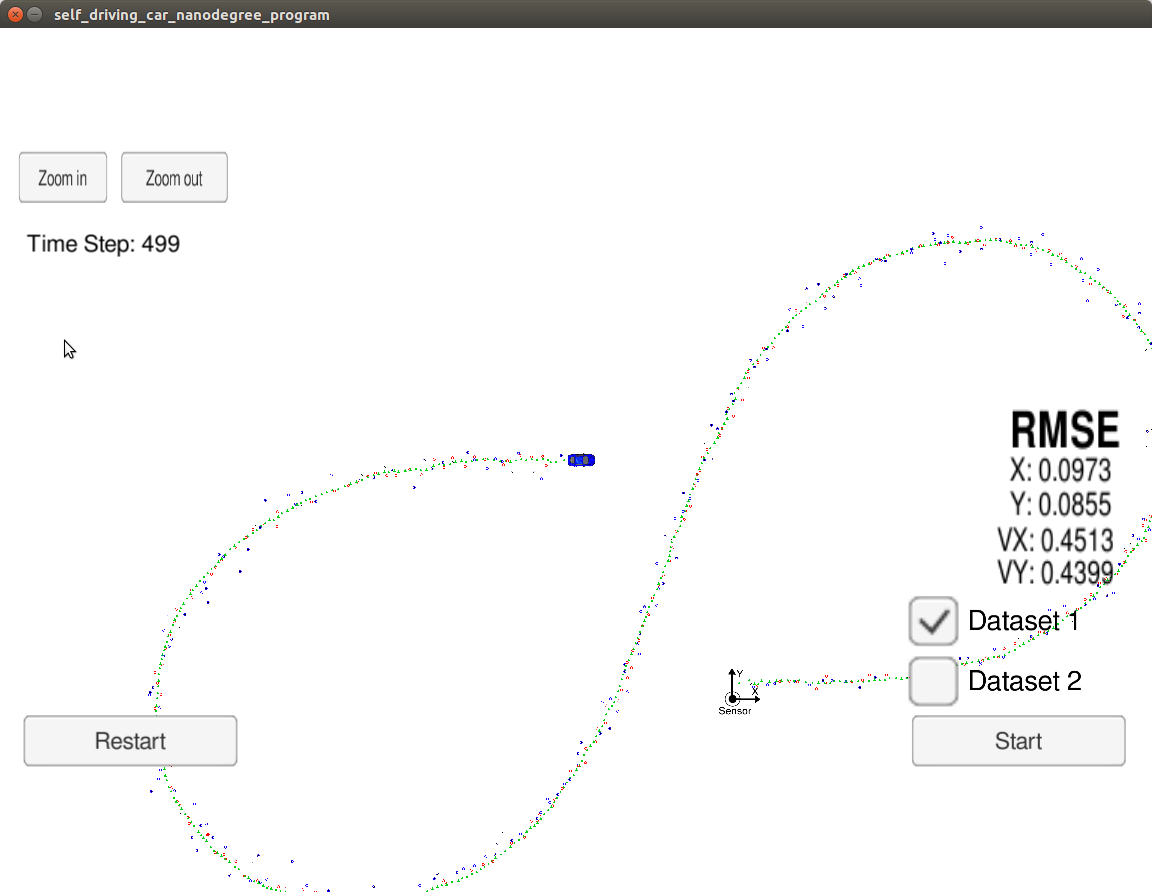Utilize a kalman filter to estimate the state: position_x, position_y, velocity_x,velocity_y of a moving object of interest with noisy lidar and radar measurements.
This project involves the Term 2 Simulator which can be downloaded here.
This repository includes two files that can be used to set up and install uWebSocketIO for either Linux or Mac systems. For windows you can use either Docker, VMware, or even Windows 10 Bash on Ubuntu to install uWebSocketIO. Please see the uWebSocketIO Starter Guide page in the classroom within the EKF Project lesson for the required version and installation scripts.
Once the install for uWebSocketIO is complete, the main program can be built and run by doing the following from the project top directory.
1. mkdir build
2. cd build
3. cmake ..
4. make
5. ./ExtendedKFINPUT: values provided by the simulator to the c++ program
["sensor_measurement"] => the measurement that the simulator observed (either lidar or radar)
OUTPUT: values provided by the c++ program to the simulator
["estimate_x"] <= kalman filter estimated position x
["estimate_y"] <= kalman filter estimated position y
["rmse_x"]
["rmse_y"]
["rmse_vx"]
["rmse_vy"]
- cmake >= 3.5
- All OSes: click here for installation instructions
- make >= 4.1 (Linux, Mac), 3.81 (Windows)
- Linux: make is installed by default on most Linux distros
- Mac: install Xcode command line tools to get make
- Windows: Click here for installation instructions
- gcc/g++ >= 5.4
- Linux: gcc / g++ is installed by default on most Linux distros
- Mac: same deal as make - install Xcode command line tools
- Windows: recommend using MinGW
- Clone this repo.
- Make a build directory:
mkdir build && cd build - Compile:
cmake .. && make- On windows, you may need to run:
cmake .. -G "Unix Makefiles" && make
- On windows, you may need to run:
- Run it:
./ExtendedKF
The image below is a screenshot from the simulator using the Unscented Kalman Filter from this project.

The Extented Kalman Filter (EKF) is a bayesian filter which estimates the position as well as the velocity of the object which is being tracked. The EKF also is a variant of the standard Kalman filter which only models linear measurement models. The EKF approximates the non-linear model by calculating the jacobian and linearizing the model. The root mean square error values are well within the acceptable range as well.
Sometimes measuremnt and process models cannot be linearised and thats where the Unscented Kalman Filter (UKF) steps in.